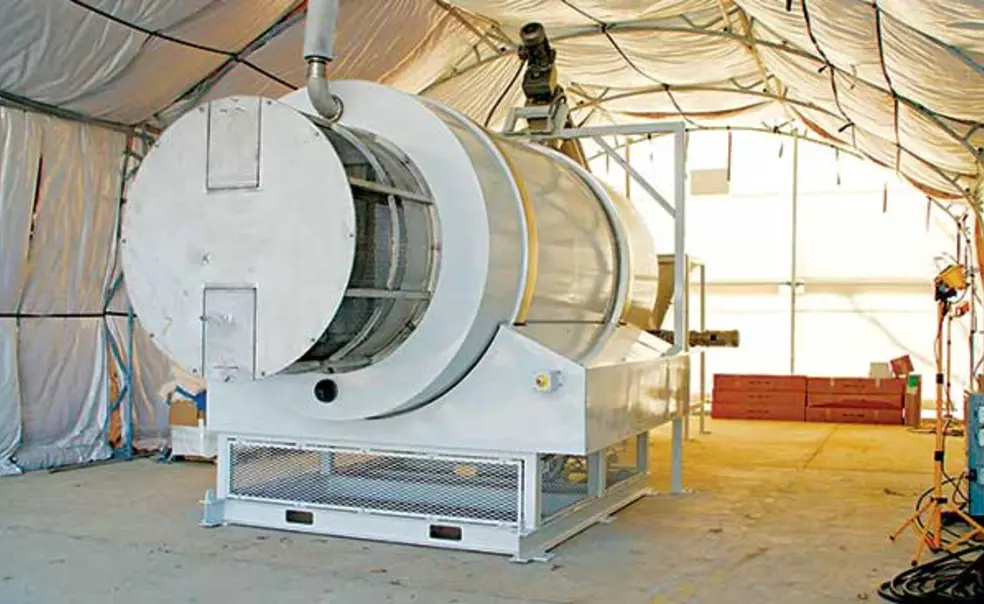Converting Waste Into Compost
Under a large white tent behind FitzRandolph Observatory, Princeton’s new “biodigester” has converted more than 20 tons of campus food scraps into nutrient-rich compost since it started working last fall.
Food waste from Frist Campus Center, campus cafés, and an undergraduate food co-op is fed into the aerobic composting system, where it is mixed with wood shavings to produce compost in five days.
The project “helps us tinker with how to reduce greenhouse-gas emissions and how to revitalize soils, reduce fossil-fuel use, and spark innovation in zero-waste systems,” said Shana Weber, director of the University’s Office of Sustainability. Food waste around the world accounts for more than 3.3 billion tons of greenhouse gases per year, she said — about 8 percent of total global emissions.
“Loading, weighing, cleaning, and off-loading the biodigester each week is a way of taking that next step in discovering how important sustainability is,” said Wesley Wiggins ’21, one of 14 students working as operational assistants at the facility. “I was shocked to see that whole fruits were being thrown away.”
The compost will be tested in the spring for its ability to enrich campus grounds. The project also provides research and teaching opportunities, officials said.
The University has worked with an organic waste-management company to compost food scraps from dining halls and the campus center, but the biodigester will help reduce costs from hauling away the food waste.












No responses yet